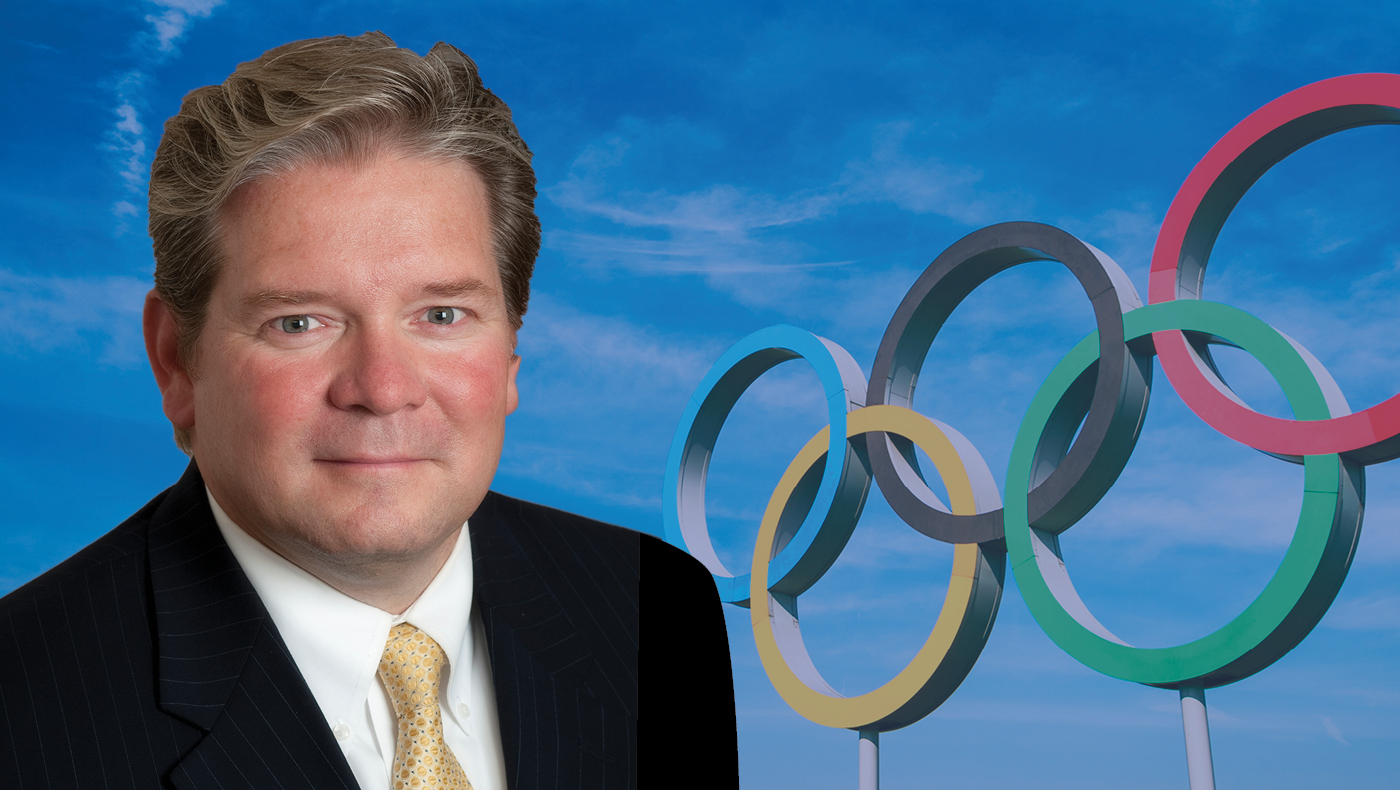After more than two weeks of nonstop coverage across the globe, the 2022 Winter Olympic Games in Beijing, China ended on Feb. 20th. Those weeks were not without big and small controversies from several competing countries.
Athletes and coaches have since returned to their home countries and pundits have weighed in about everything from how the Games looked to the world, to the upsets, the triumphs and controversial performances.
At the University of Delaware, two professors, Matthew Robinson and Jeff Schneider, have worked with more than 350 coaches from 125 countries in 25 different sports through the International Olympic Committee (IOC). They have also helped the Olympic Solidarity and United States Olympic and Paralympic Committee (USOPC) funded coach-development programs International Coaching Enrichment Certificate Program (ICECP) and the International Coaching Apprenticeship in Basketball (ICAB).
Robinson is a professor of sport management in UD’s Alfred Lerner College of Business and Economics and Schneider is a senior instructor in UD’s College of Health Sciences. The ICECP program focuses on issues like talent development and identification, sport psychology, kinesiology, nutrition and leadership skills. Several graduates of these programs launched grassroots training programs in the developing world. Many athletes from those countries participated in the most recent Olympics. Robinson gave his expert takeaways from the games and thoughts about their future.
1. TRAINING DURING COVID-19
It was true that COVID-19 pandemic stymied some athletes and prevented others from competing, but it also reinforced and help push forward alternative ways of training, much like the whole world has had to do in the face of the pandemic. Robinson said the one positive about the situation was that more people became open to virtual training.
Coaches could gather what they needed and take it to their athletes who could not meet in-person. Both individual athletes and team sports players developed greater flexibility for using the space and equipment they had available to work on their skill set. Athletes got to reflect on past training methods and alter some but not let their skills atrophy. Robinson suggests that both coaching and training could benefit from virtual prep for the Games going forward.
2. ESPORTS IN THE OLYMPICS
Robinson said that video games were a great compliment to training, in the sense of replicating the mindset and decision-making in team sports. Advances in technology, coupled with the fact that more athletes and coaches are gravitating toward video games, has created a shift in the culture.
According to Robinson, video games present a great way to simulate situations for athletes. Virtual reality games give athletes the chance to match conditions they would face in the actual sport they play and practice making split second decisions. The pandemic made people who were once opposed to video games more open to it. Robinson believes that esports might even become a future Olympic event.
3. OLYMPICS FATIGUE
Because of the COVID-19 pandemic, the 2020 Summer Olympics had to be pushed back to Summer 2021 in Tokyo, Japan. They were quickly followed by the Winter Olympics in 2022. Historically, the Olympic Games are held every four years, rotating every two years between summer and winter. With the games being pushed back and then following each other so quickly, Robinson worries that people will need a break from the Olympics.
Figures released after the games were over showed that the 2022 Winter Olympics in China had the lowest U.S. ratings ever. Viewership dropped to 11.4 million from 19.8 million, more than 40 percent, from the previous winter Olympics in South Korea.
Another factor affecting viewership could be that top tier athletes in major sports have been backing away from Olympic play. Robinson pointed out that the best players from the National Hockey League (NHL) did not compete this year, whereas in years past the NHL paused the season so athletes could compete. There were concerns from professional teams who felt they were putting their franchises at risk if a star player was injured. Several high profile National Basketball Association (NBA) players opted out of playing at the 2020 Olympics as well. Robinson thinks this might become the norm for high-profile sports like hockey and basketball.
Ultimately no one knows how future Olympics Games will look. Geopolitical events could change the make of the event. Television networks might alter airing live events to capture larger audiences. The world will be watching.




